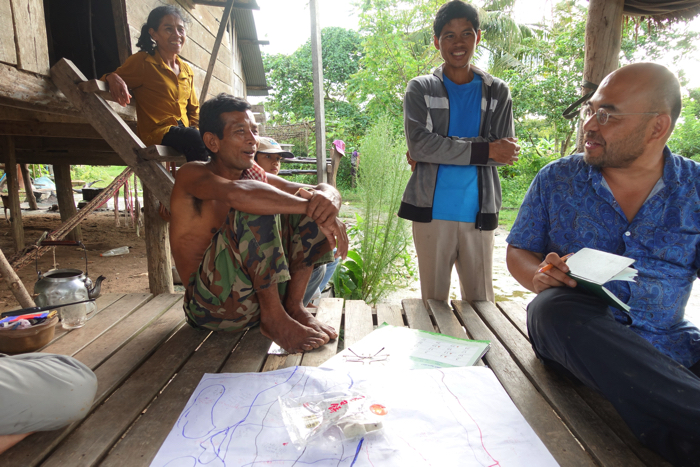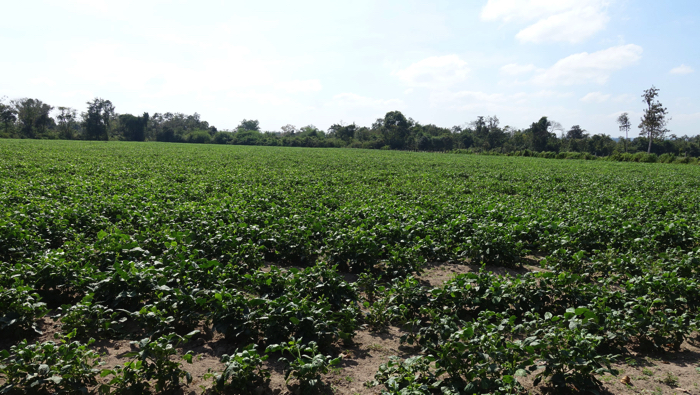- Project Leader : Hyakumura Kimihiko (Kyushu University, Institute of Tropical Agriculture)
- Collaborators : Yagura Kenjiro (Hannan University, Faculty of Economics)
- : Honma Koki (Tohoku University, Graduate School of Agricultural Science)
- : Hoshikawa Keisuke (Toyama Prefectural University, Faculty of Engineering)
- : Hori Mina (Kochi University, Research and Education Faculty, Multidisciplinary Science Cluster)
- : Kono Yasuyuki (Kyoto University, Center for Southeast Asian Studies)
- : Kobayashi Satoru (Kyoto University, Center for Southeast Asian Studies)
- : KC Krishana Bahadur (University of Guelph, Department of Geography)
- : Hor Sanara (Royal University of Agriculture, Faculty of Land management and Land administration)
Outline of Research
The objective of this study is to explore the meaning of transforming ecological resource use in rural villages of Southeast Asia through the inter-disciplinary case study conducted in Pursat Province, Cambodia. The province, where is located in the south of Tonle Sap Lake, is rich in ecological diversity so that researchers could observe various kinds of livelihood activities such as fishing and rice-growing as well as the way how local people make a living by combining them. This research will examine the resource use transformation and changing livelihood activities in the area with a particular reference to the ago-ecological zones of the province.
Description
Cambodia had experienced the civil war and international isolation from the end of the 1960s to the early 1990s. It means the radical changes in rural society in the country due to globalization had started in the 1990s. In other words, we could observe its changing process in a very compressed timeframe of only about 30 years. Moreover, Pursat Province has a rich ecological diversity such as lowland areas affected by inland waters, hills, and mountains. These unique ecological features make the province an ideal case study area for exploring the current condition and future vision of rural societies and rural livelihoods in Southeast Asia in the 21st century.
This study will firstly examine local people’s livelihoods and ecological resource use in Pursat Province since the 1990s with particular attention to the agro-ecological diversity in the area. We will explore relationships between human activities, material flow, and economic development trends in the area through multiple perspectives of different disciplines. It organizes research meetings by inviting Japanese researchers who had conducted fieldworks in the province in FY 2019. In FY 2020, it will invite Dr. KC Krishna, who has a deep insight into the transformation of fish resource use in Tonle Sap Lake to CSEAS, Kyoto University. The participation of Dr. Krishna to this project will contribute to making the discussion comprehensively.
In the end, the study tries to publish findings and analysis through commercial publications and journal papers for contributing to the development of the argument for the future of rural communities in Southeast Asia in the era of globalization.
 Interview survey in Pursat Province |
 Cash crop plantation in hill area of Pursat Province |
